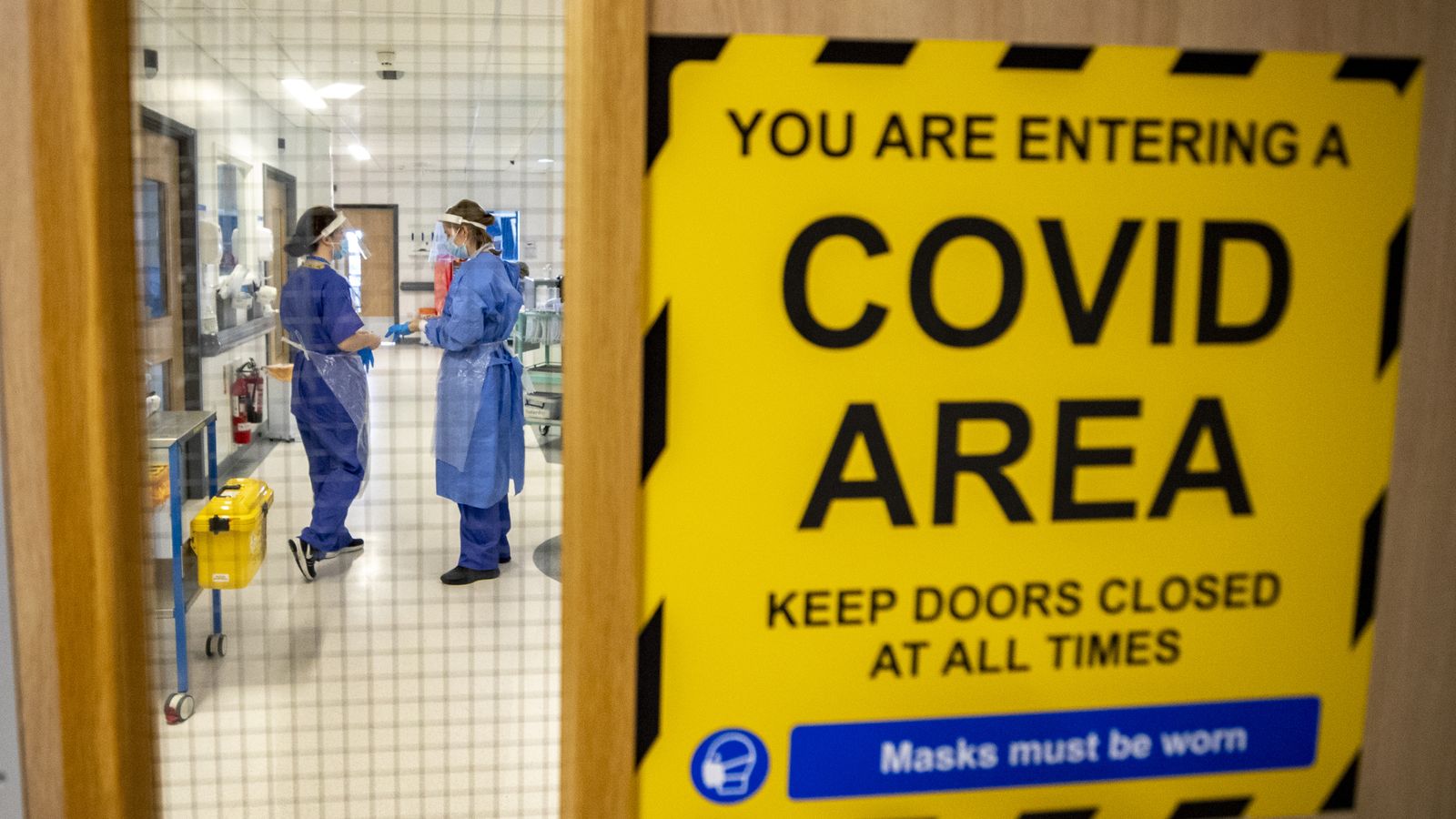A Berlin-born man who threatened to blow up an NHS hospital unless he was paid £10m in cryptocurrency has been convicted of extortion by a German court.
Emil A, an Italian national, sent the first threatening email to the NHS in April 2020 – at the height of the first peak of the coronavirus pandemic – purporting to be a member of the far-right group Combat 18.
Over a six-week period he sent 18 emails, also making threats to blow up BLM protests and murder members of parliament.
The UK’s National Crime Agency (NCA) said their experts worked 24 hours a day analysing leads and electronic communication, eventually tracking Emil A down to a flat in the German capital.
On 15 June, specialist firearms officers from Berlin Police used explosives to force entry to his flat and arrest him.
The 33-year-old – who has been in custody since his arrest – was sentenced to three years in prison, but released on bail by the court before his judgment is ratified.
Tim Court, the NCA’s head of investigations, said Emil A’s actions were “the most significant threat we’ve seen to UK infrastructure” – and that he sought to hijack significant social events like the BLM protests for monetary gain and disrupt the treatment of people suffering with coronavirus.
Mr Court said: “At the height of this we were losing nearly 1,000 people a day and we had to manage someone threatening to plant a bomb. He didn’t have access to it, but if [his threat] had become public, the impact on the confidence of people to go to hospital would have been significant.”
Authorities say Emil A didn’t have any links to the UK or its health service, but that his aim was to exploit the vulnerability of NHS, which was dealing with an influx of COVID-19 patients in the first wave of the pandemic.
Nigel Leary, deputy director of the NCA’s National Cyber Crime Unit, said a phone call threatening to detonate a bomb in hospital could have resulted in a loss of life because it would have been difficult to evacuate patients on ventilators.
Detectives were initially unsure whether Emil A operated alone or as part of a group, but concluded that he didn’t have any links to far-right organisations and posed as a member of a neo-Nazi group in order to stoke fear.
An NHS spokesperson said: “The threat made during the extortion demand significantly added to the pressures on the NHS during the COVID pandemic and meant senior leaders and emergency response staff were called on to direct the NHS aspects of the response to this threat.
“The threat and demand was made at a time that hospitals were at their most vulnerable, and could have resulted in significant loss of life.”






















